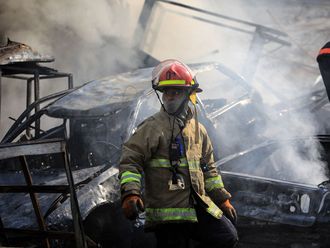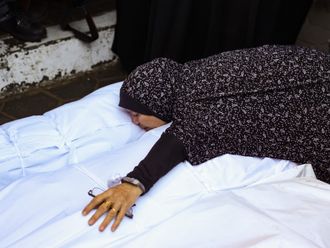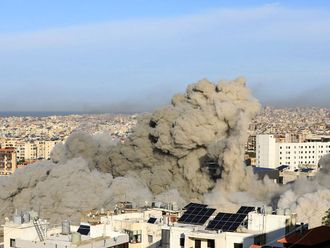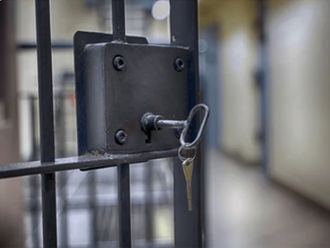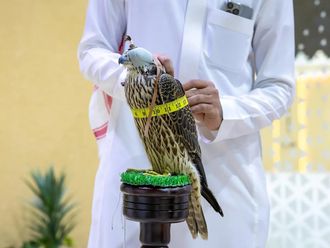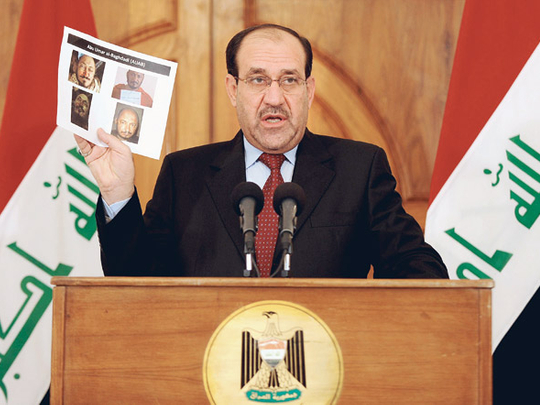
Baghdad: The death of a top Al Qaida in Iraq (AQI) leader could sever a link between Al Qaida headquarters and its Iraqi offshoot but the identity of a second figure previously announced to have been killed appears far from clear.
Iraqi Prime Minister Nouri Al Maliki on Monday announced that Iraqi and US forces had killed Abu Omar Al Baghdadi and Abu Ayoub Al Masri, an Egyptian believed to have ties to the Al Qaida leadership, in a rocket attack on their safe house in northern Iraq on Sunday.
US officials believe Al Masri replaced Abu Musab Al Zarqawi in Iraq after the latter's killing in 2006. They said Al Masri had fought and trained with the group in Afghanistan prior to the US invasion of Iraq.
Pseudonym
Al Baghdadi, the leader of the self-declared Islamic State of Iraq, is believed to be a pseudonym for Hamid Dawud Mohammad Khalil Al Zawi, an Iraqi ex-army officer, who is said to have come from a number of different places, including Haditha in the western Anbar province. ‘Al Bagdhadi' means ‘from Baghdad'.
Iraqi authorities announced last year they had killed Al Baghdadi, a claim never verified by the US military, which has said in the past that the person attributed to the name might be fictitious — a composite figure to put an Iraqi face on Al Qaida's operations in Iraq.
Al Maliki said yesterday that insurgents had attributed the name to various fighters over the years to sow confusion among US and Iraqi forces, but that the man killed on Sunday was the "original" Al Baghdadi.
"Al Baghdadi was initially assessed to be a fictional character, however, reporting has proven otherwise," US Army Major General Steve Lanza wrote in an e-mail.
He said Al Baghdadi was the senior Iraqi member of AQI and acted as an emissary for Al Masri and had support from senior Al Qaida leaders in Pakistan. The military did not address how it knew that Al Zawi was Al Baghdadi.
Lanza wrote that Iraqi and US forces determined that two of the four people killed in the attack were Al Masri and Al Zawi through DNA testing, photo identification, fingerprint verification, and known scars.
Different views
Though it appeared clear that one of the dead was Al Zawi, there was doubt among some counter-terrorism analysts as to whether that man actually was Al Baghdadi or even whether such a person exists.
"I think it's good news if Al Baghdadi turns out to be a single individual, but it wouldn't surprise me if AQI/ISI comes out and says Al Baghdadi lives on," said Brian Fishman, a counter-terrorism research fellow at the New America Foundation, a Washington think-tank. "This guy has never been seen in public claiming ‘I'm Abu Omar Al Baghdadi'. It's always been claimed by the outside," he said in a telephone interview.
In his address on state television, Al Maliki displayed photographs of the two men. He did not say when Al Baghdadi was detained and a US military spokesman said they had no information on the matter.
Fishman, who previously researched insurgent groups at West Point's Center for Combating Terrorism, said that while DNA evidence seemed plausible for Al Masri, it was less likely that DNA testing could definitively identify Al Baghdadi.
"Al Masri's face has been out there for a while — he's been on the run for years now and he'd been an army officer in Egypt so there might have been ways to track down DNA on him with some reliability but that's got to be a lot harder with Baghdadi," he said.
Yesterday, a joint US-Iraqi morning raid killed suspected insurgent leader Ahmad Al Obaidi in the northern province of Ninevah, an Iraqi military spokesman said.



